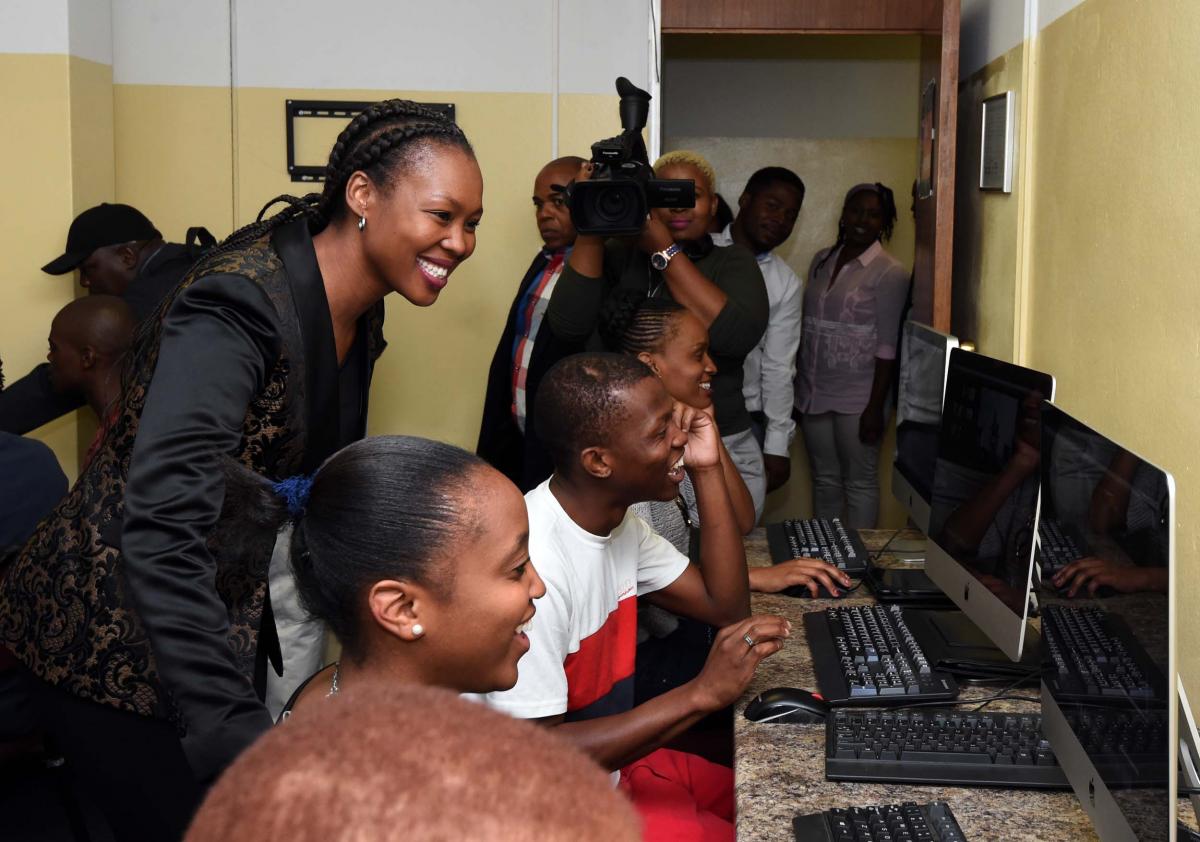When Aphiwe Cengimbo (24) matriculated in 2011, what he knew for sure was that he wanted to be in the media and digital industry.
 However, with no funding to pursue his dream through a tertiary institution, his dreams were shattered. Determined not to give up on his dream, the youngster from Vosloorus in the East Rand spent his time researching opportunities available to him.
However, with no funding to pursue his dream through a tertiary institution, his dreams were shattered. Determined not to give up on his dream, the youngster from Vosloorus in the East Rand spent his time researching opportunities available to him.
“That is when I came across Communications Deputy Minister Stella Ndabeni-Abrahams’s 2015 Budget Vote Speech, wherein she committed to ensure the training of unemployed youth, learners and teachers in online video editing software.
“After much research about the project, through the National Youth Development Agency database, I registered and started with the project in March,” said Cengimbo.
He is now one of 150 previously unemployed youth from Gauteng, Eastern Cape and Western Cape benefiting from the project.
The pilot project is being rolled out in partnership with the Media, Information and Communication Technologies Sector Education Training Authority (MICT-SETA) and Atos.
The course, according to Atos – who are the facilitators of the course –consists of four modules that focus on communication, sound, camera and editing. The learners are also given tablets in order to carry out course assignments.
Upon completion, the learners will be awarded a NQF 5 national certificate in Film and Television Production.
“I learnt a lot during the few months. It has not been easy but the project is giving me hands-on experience, practical skills and matching them to the theory. I believe that the skills will definitely help me in the future. I am now closer to my dreams,” Cengimbo told Vuk’uzenzele.
Other learners Vuk’uzenzele spoke to hailed the project, saying it is skilling them in line with the latest global trends.
“It’s an all-in-one course which does not limit me only to communication. I am also learning other segments like how to operate the camera and edit content. So no matter where I get a job, I will be an all-rounder,” said learner Zoleka Mazilazila.
Deputy Minister Ndabeni-Abrahams told Vuk’uzenzele during her monitoring visit in Johannesburg recently that the youth who are participating in the project are those who could not afford tertiary institutions, unemployed graduates in the media sector and those who had interest in the media sector.
She hopes to expand the programme to other provinces.
“We would love to see this project in every province to ensure that youth have a skill where they can help local government or municipalities to tell their own stories. But first we need to see how it is being received, address the challenges or what needs to be improved.”
The Deputy Minister hopes the project will help curb youth unemployment.
“As government, we are prepared to partner with anyone in order to bridge the gap and address our challenges so that we can grow the economy of our country,” said Deputy Minister Ndabeni-Abrahams.
MICT-SETA’s Jabu Sibeko said the institution is committed to the project. He encouraged learners to use the opportunity given to them.
“We want to see it as a success. Come August, we want to see you successful … Therefore take the course seriously so that you take the skills and benefit the economy of the country.”

 Facebook
Facebook Twitter
Twitter WhatsApp
WhatsApp